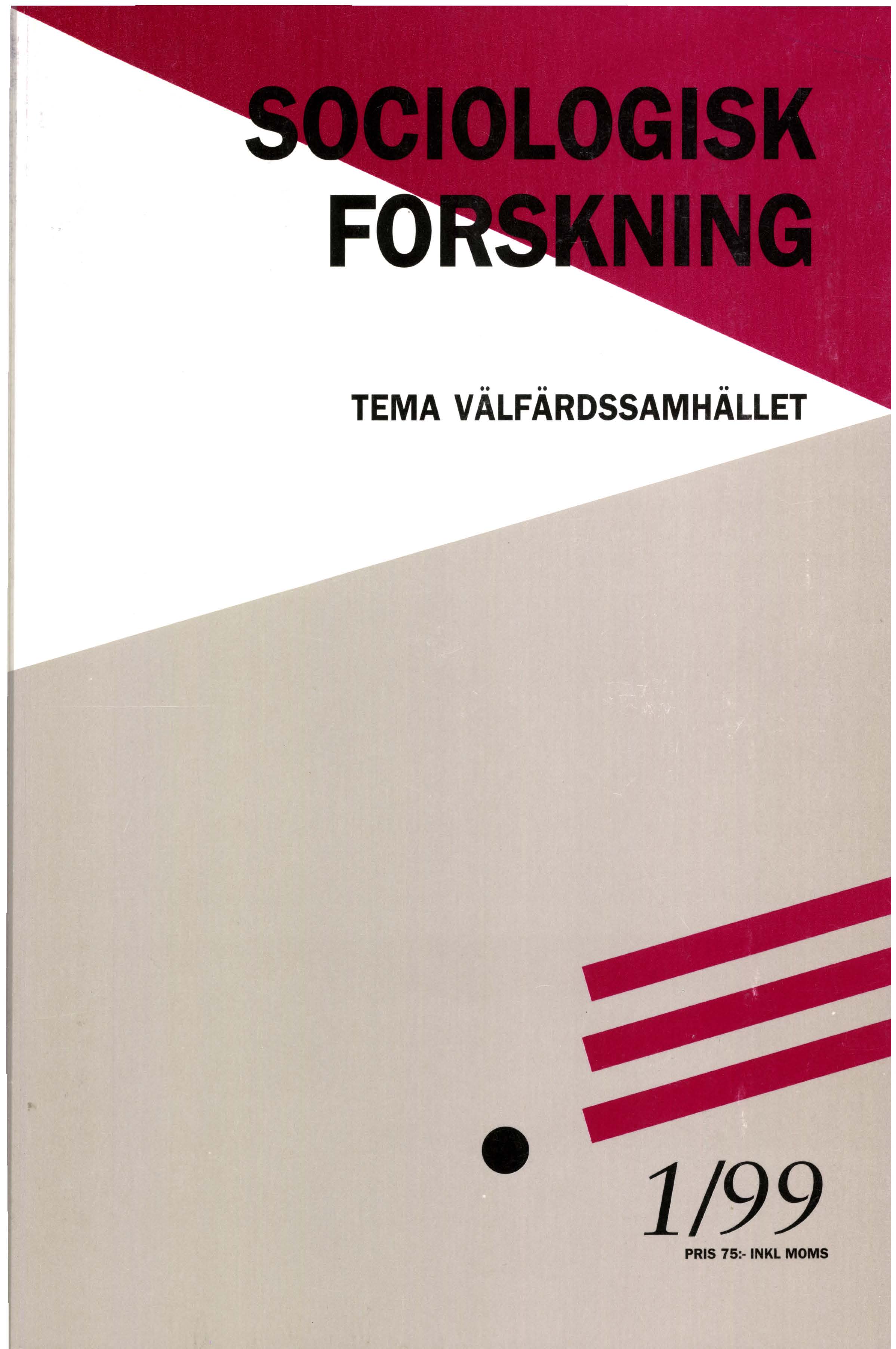Omsorgsarbetets olika former
Nya klasskillnader och gamla könsmönster i äldreomsorgen
DOI:
https://doi.org/10.37062/sf.36.18476Abstract
Changing forms of care work: New class distinctions and old gender patterns in care for the elderly
Comparative welfare state research has only recently broadened the sphere of interest from income transfers to include social care services as well; i.e., to consider the welfare state not only as a social insurance state but also as a social service state. In the article a typology of care work is suggested and used as a tool to analyse changes in the provision and financing of care for the elderly in Sweden in the 90s. Publicly financed care work, such as the municipal home-help services equally distributed among all socio-economic groups, has declined. The decrease in coverage is related both to stricter need assessments and to reduced demands due to raised user fees and changes in the content and organisation of the services; i.e. both exclusion and exit. At the same time, unpaid family care as well as care purchased on the market and paid entirely by the elderly themselves seem to be increasing. These boundary shifts lead to an increased class-related dualisation of cares ystems - an informalisation of care for less well-off groups and a marketisation for those better-off. These changes are effects of changing practice rather than explicit policy changes, and can be seen as signs of a creeping selectivisation of the universal welfare system.
Downloads
Published
How to Cite
Issue
Section
License
All content in Sociologisk Forskning is published with immediate open access, under the Creative Commons license CC BY-NC-ND 4.0.
All content may be read, downloaded, shared and printed for non-commercial purposes, free and without fees. Contents may not be altered. When content is reused, author, source and a link to the copyright licence must be provided. The author retains copyright to their content. No publication fees are charged.





